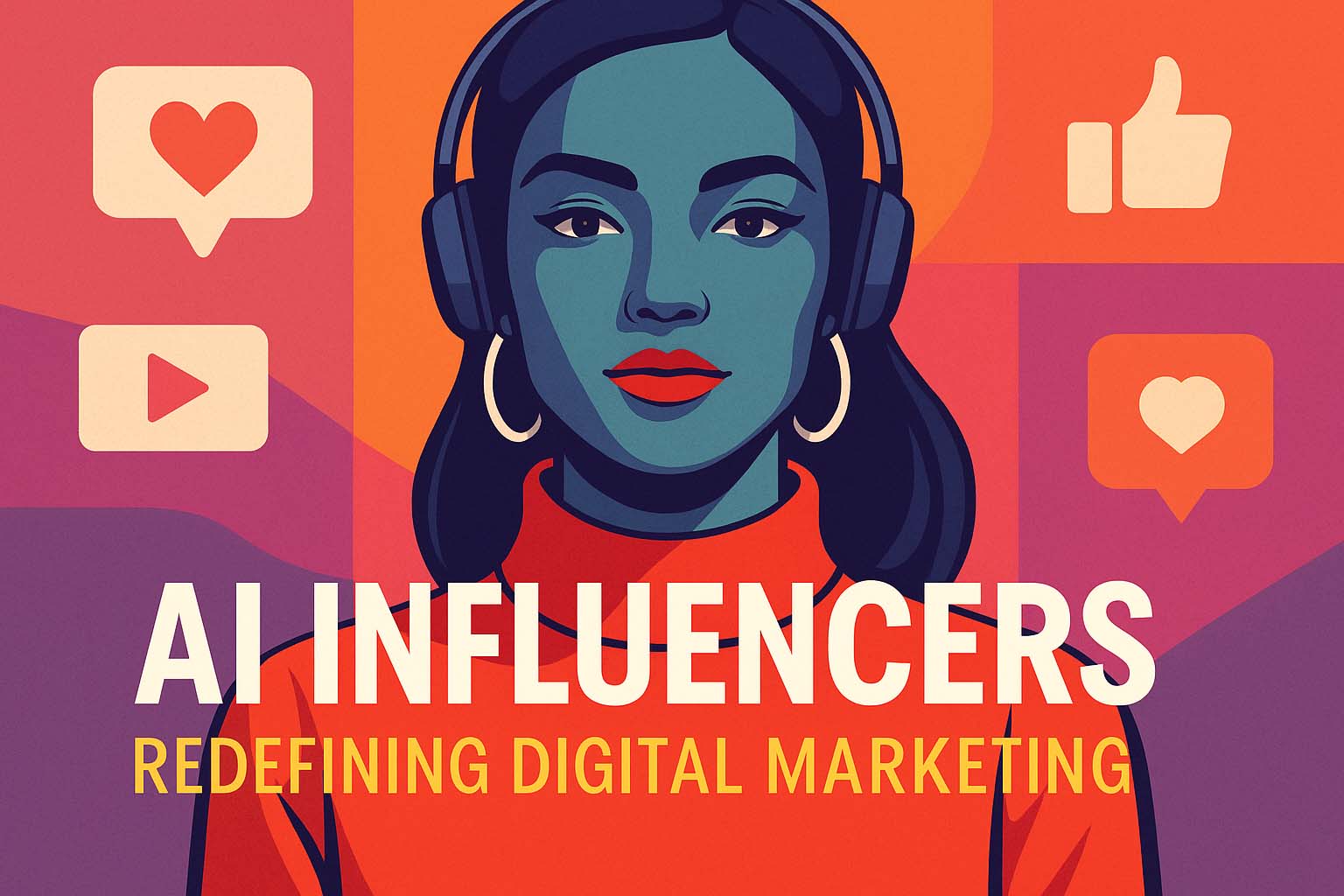How AI Influencers Are Redefining Digital Marketing in 2025
In the dynamic world of digital marketing, 2025 is shaping up to be the year AI influencers truly take center stage. These virtual creators are no longer just quirky novelties—they’re becoming powerful brand advocates, capable of driving engagement, building communities, and even challenging human influencer norms.
If you’re a marketer, content creator, or brand strategist wondering how to leverage this rising phenomenon, you’re in the right place. Let’s dive deep into why AI influencers have become a viral sensation, their unique strengths, and how you can harness their power to boost your marketing game.
—
What Exactly Is an AI Influencer?
AI influencers are digital personas crafted with sophisticated algorithms, often blending photorealistic avatars, natural language processing, and personality programming. They exist across social channels like Instagram, TikTok, and YouTube, producing content and interacting with fans—but with a twist: no human is behind the scenes managing every move.
Unlike traditional influencers, AI influencers can post 24/7 without fatigue, customize messaging instantaneously for different audiences, and generate data-driven content trends at scale. They blend creativity and computation to carve out entirely new niches in content marketing.
Why Are AI Influencers Exploding in Popularity Now?
Several tech and cultural megatrends have converged to thrust AI influencers into the spotlight:
– Advances in Multimodal AI Models: Modern AI now seamlessly combines text, images, and audio to generate rich, engaging content with minimal human input.
– Audience Fatigue with Human Influencers: With growing scrutiny over authenticity and sponsored content fatigue, some audiences crave fresh, flawless, and hassle-free personas.
– Brands Craving Consistency & Control: AI influencers offer brands full control over messaging and brand values, reducing risks related to influencer scandals.
– Economic Efficiency: AI influencers can be scaled and repurposed without the cost or downtime associated with human creators.
See our recent guide on AI for broader insights into how AI tools are evolving in marketing.
How AI Influencers Are Changing Brand Storytelling
Gone are the days when influencer marketing meant post-after-post of product plugs. AI influencers are helping brands craft immersive story arcs through:
– Personalized Storytelling: Using audience data to tweak narratives in real-time, keeping brand stories fresh and relevant.
– Interactive Engagement: AI-powered chatbots and virtual events where followers can directly interact with AI influencers, creating unique user experiences.
– Cross-Platform Presence: AI influencers thrive in multimodal content delivery, from short videos to podcasts, reaching audiences wherever they consume content.
For example, Lil Miquela, one of the earliest AI influencers, already demonstrated how brands could combine social commentary, fashion, and activism through her persona, proving AI influencers can be more than mere product advertisers.
Ethical Considerations and Authenticity Questions
As AI influences grows, so do concerns around transparency and ethics:
– Disclosure: Should audiences always be informed they’re engaging with AI? Regulations are evolving, and brands need to maintain trust.
– Representation: Who programs AI influencers, and how do inherent biases affect their portrayal of gender, race, and culture?
– Impact on Human Influencers: How will this shift affect real creators’ jobs and income?
Clear guidelines and openness will be key in addressing these ethical questions while harnessing AI’s benefits responsibly.
Getting Started: How Can Marketers Leverage AI Influencers Today?
If you’re intrigued by the potential but unsure where to start, consider these practical steps:
– Pilot Collaborations: Start with a small campaign using an existing AI influencer to understand audience response.
– Develop Your Own AI Persona: Brands with resources can invest in custom AI avatars tailored to their niche, personality, and voice.
– Integrate AI Content Tools: Use AI generators to assist your human influencers in creating richer story experiences.
– Monitor Engagement Analytics: AI-powered dashboards can give insights into what content resonates best, allowing for agile marketing.
The AI influencer space is still evolving but moving fast. Early adopters stand to gain significant competitive advantages.
—
Summary
AI influencers represent the new frontier of digital marketing in 2025—combining creativity, efficiency, and direct audience connection through advanced AI technology. While challenges around ethics and authenticity remain, the opportunities for brands to tell compelling stories and scale engagement are monumental. Whether you experiment with existing AI creators or build custom personas, AI influencers are here to stay—and redefining the rules of influence.
Ready to ride this wave? Dive into the world of AI influencers and watch your brand narrative transform.
See our recent guide on AI to keep ahead of the trends.
—
FAQ
Q1: What is an AI influencer, and how do they differ from human influencers?
An AI influencer is a digital persona created using artificial intelligence technologies such as computer vision, natural language processing, and content generation. Unlike human influencers, they operate autonomously and provide brands with consistent, scalable messaging.
Q2: Are AI influencers ethical, and do brands need to disclose when they use them?
Transparency is essential. Brands should disclose when they use AI influencers to maintain trust and comply with evolving regulations, ensuring audiences know they are interacting with AI-created content.
Q3: How can my brand start using AI influencers in marketing campaigns?
Begin with pilot campaigns featuring existing AI influencers or develop custom AI personas tailored to your brand. Use AI-driven content tools and monitor engagement metrics to optimize success.
📢 Want more insights like this? Explore more trending topics.



